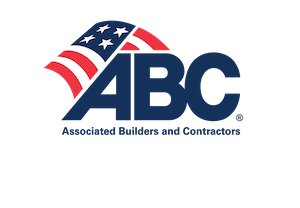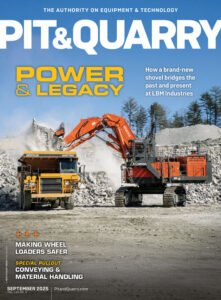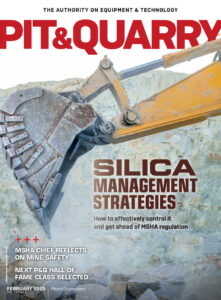
Hiring enough people is one thing. Keeping them from jumping ship is another.
“We are seeing a trend where folks change jobs for 50 cents or a dollar more an hour,” Jacomet says. “They’re not really looking at the long-term picture. We need to sell them the idea that working in the aggregate industry provides a career that’s going to be here for a long time. These are not jobs that we will be shipping overseas. Our products need to be made and used locally. The very positive message we can carry is that people are contributing to their community and society at the local level.”
Companies can increase retention rates from the very beginning by ensuring new employees have a rewarding experience.
“We recently hired someone for a new onboarding coach position,” Alf says. “This individual will be working with new hires to ensure they feel comfortable with their work environment, that they develop good work habits such as showing up on time, and that they understand the nature of their job before they report to their managers. We think this will help us be more successful in keeping people.”
Alf feels the coach will be especially important for high school graduates who’ve never held a job before and are unfamiliar with workplace expectations.
“The coach is also bilingual, which helps in the onboarding of employees that speak Spanish as their primary language,” she says. “They are an important part our workforce and inclusion efforts.”
Workers will also stay longer when companies extend career-enhancing opportunities. Melvin Stone is rolling out the BuildWitt training program as its learning management system. Employees are offered the opportunity to advance their careers by going online and earning micro-credentials watching videos that are less than five minutes long.

“This gives the company the opportunity to measure who is going over and above and may help us spot future leadership potential,” Alf says.
OAIMA also introduced an Emerging Leaders Program to help members develop skills in leadership, listening and dealing with conflicts. That can also help with retention.
“We call it emerging leaders rather than young leaders because we feel people can better themselves at any age,” Jacomet says.
Other retention tactics include introducing benefits that employees want and treating everyone like family.
“We have expanded our benefits program to include full medical,” Fasoli says. “That is often a huge retention factor for retaining guys who have two or three kids, dental appointments, eyeglasses and so on. We also treat employees as if they’re part of the family. We hold company barbecues during the summer and create a sense of belonging, which has definitely worked.”
Communicate well
Finally, companies can better their recruitment and retention track record by listening to the concerns of employees and ensuring they have an effective voice.
“We try to promote good communication between all levels of staff, from upper management to shop floor employees,” Fasoli says. “Everyone feels they can help make the company successful.”
This dynamic is enhanced by the horizontal nature of the company’s organizational chart. Red tape is kept short, and management attempts to solve the problems employees are having.
“We take the approach that we all have a job to do, and we should be pulling the cart in the same direction,” Fasoli says. “We have created a team environment where no one is working for someone else, but everyone is working together.”
Developing a close and productive relationship with employees has paid off, Fasoli adds.
“In the past five years our company retention has improved exponentially,” he says.
Phillip M. Perry is an award-winning journalist who is published widely in the fields of business management, workplace psychology and employment law.











